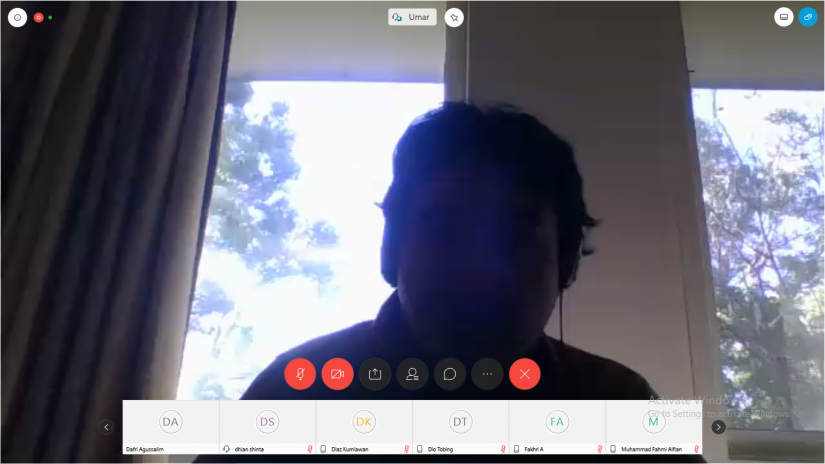
Yogyakarta, May 5th, 2020– COVID-19 global pandemic which is testing ASEAN regional Corporation was discussed by the ASEAN Studies Center (ASC) Faculty of Social and Political Sciences UGM who held the ASEAN discussion entitled “The Past and the Future of ASEAN Health Cooperation” with Ahmad Rizky Mardathillah Umar, a PhD candidate at the University of Queensland, Australia.
Opening the discussion with a complex mapping of ASEAN response, Umar saw that there were uneven policy responses among the member of the countries and there was no coordinated response information to reduce the early spread of COVID-19. The response also raised the question, “What explains the limited ASEAN policy response to COVID-19? What does history tell about health cooperation in ASEAN and its possibilities in the future?”
Using the approach of historical institutionalism, there are three things deepened regarding ASEAN cooperation. First, the norms and practices of ASEAN cooperation develop and always respond to the changing structures in the political world. Second, there is a path dependence where the pattern of past cooperation will affect current policies. Third, continuity and change are how certain patterns of cooperation can sustain change and sustainability. Umar also used the “process-tracing” method from1976 until now through analysis of the data from the ASEAN Secretariat documents and other relevant data.
The history of ASEAN in health management was also marked since the 1990s through the 4th ASEAN Summit in Singapore (1992) on AIDS Prevention. In the 2000s through the SARS Meeting in Bangkok (2003) and in the 2010s through the ASEAN Post-105 Development Agenda on integration with SDGs.
Based on these pursuits, Umar argued that ASEAN’s policy response to COVID-19 being limited was the result of four things; first, ASEAN’s long history of marginalizing health problems. Second, reactionary and unsustainable responses to past outbreaks. Third, excessive dependence on “non-interference” and “health sovereignty” parties. Fourth, weak and poorly coordinated institutions.
Therefore, the possible agenda is the need for a collective health surveillance system that was originally “Trust-Based” to be coordinated. Through encourage sectoral and technical cooperation, increased funds for research and collaboration, reconcile hope cooperation with SDGs, increase access to health, integrate health risks in development cooperation and encourage the responsibility of the private sector to cooperate with the government.
“ASEAN which often cooperates in the economic field, needs to be responsive to health problems and collectively and comprehensively. It should be understood that COVID-19 is not the only evidence of coordination failure, but also is wary of the possibility of a pandemic in the future that requires cooperation,” concluded Umar.
